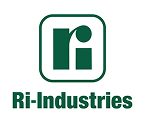A septic system not used or maintained properly can bring unsolicited problems as well as become a health hazard and compromise the quality of your water. Here are 4 common myths Ri-Industries wants septic tank owners to be aware of:
MYTH #1: The amount of water a family uses or consumes does not affect its septic tank system.
Water consumption and use, whether through leaking pipes and taps or excessive laundering, will increase the amount of effluent that travels through the tank, requiring more frequent pumping. Ri-Industries recommends being diligent about thorough routine inspections of your plumbing fixtures in addition to your septic tank.
MYTH #2: Bacteria additives are not necessary for your tank.
Solids are broken down by the presence of bacteria; therefore bacteria additives may be an alternative to help your system break down the grease and oils to help your septic tank to work properly and efficiently
MYTH #3: Pouring household chemicals down your drain does not harm your septic tank.
One of the easiest ways to rid your house of chemicals and hazardous materials is to flush them down the drain or toilet. Don’t do it. This practice can cause damage to your septic system and is a health hazard. A great way to avoid toxins in your house and your septic system is to use all natural chemicals.
MYTH #4: If it ain’t broke, don’t fix it!
Don’t wait for a problem or for your tank to break. Routine maintenance of your system is required to keep your tank functioning and to prevent damage to your drainfield. Plus, your septic tank will last longer with proper preventive maintenance—and will save you money in the long-run.
If you own a septic tank system and are unsure of how it works, and what is required to keep your tank in good working condition, don’t hesitate to contact us at Ri-Industries. We serve customers throughout Adelaide and South Australia.





